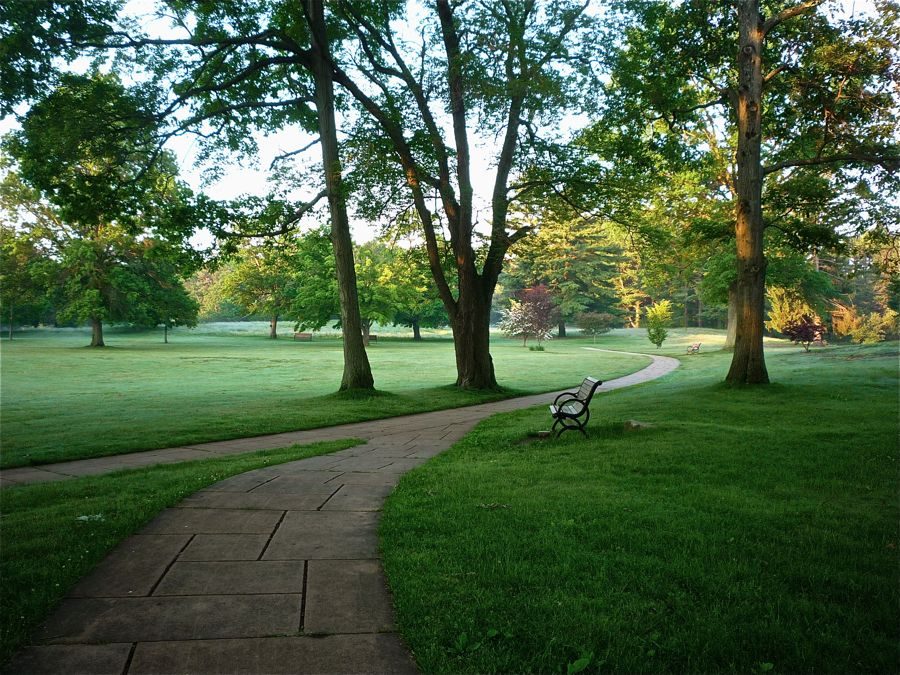Walpole High School Should Take Advantage of the Outdoors
In 2017, Walpole High School (WHS) changed its physical education requirements so that incoming students would have to take gym all four years of high school. In gym class, students get to go outside in nature to play sports and experience the ropes course. While during the nicer weather all of the underclassmen go outside, most of the students who are currently juniors and seniors do not take gym class and, therefore, do not get a chance to go outside. Instead, students spend all day cooped inside sitting still while reading textbooks and listening to lectures. What ever happened to learning from being outside? In elementary and middle school, kids have time for recess, in which they explore their world while breathing in fresh air. But for the most part in high school, students unwillingly stay inside. Walpole High School must take advantage of nature for classrooms to enhance learning.
Being in the fresh air has proven health benefits for mental health and memory. According to a study run by Stanford Researchers published in “Proceedings of the National Academy of Science,” people who walked 90 minutes in a natural area, as opposed to people who walked the same amount of time in a high-traffic urban setting, showed decreased activity in the part of the brain that acts as a factor for depression. Being in a natural setting, according to Business Outsider, elicits feelings of awe, which in turn is a mental boost.
Outdoor Education is experiencing nature to learn and taking advantage of the outdoors; it is learning by doing. One example of this program’s success is at Colgate University, which has one of the nation’s best Outdoor Education programs. They inspire a sense of adventure in outdoor activities—such as tree climbing, kayaking or snowshoeing—by encouraging learning to not just be limited to inside the classroom.
While Colgate’s location in Hamilton, NY is ideal, Walpole’s location in New England can easily match or exceed the beauty of upstate New York. In fact, Walpole itself has around 2,000 publicly accessible acres of open land, including the town forest, Adam’s Farm and Bird Park. Not to mention, Walpole is in the heart of New England and experiences the beauty of all the seasons. At WHS, Outdoor Education should be comprised of field trips, incorporated lesson plans and outdoor classrooms.
Field trips would encourage students and faculty to bond in nature. During autumn, they can take field trips to go apple or pumpkin picking at local farms like Wards Berry Farm in Sharon, MA or Honey Pot Hill Orchards in Stowe, MA. They could go skiing or sledding at Wachusett Mountain in Princeton, MA or Nashoba Valley Ski Area in Westford, MA in the wintertime. In the spring, they could kayak on the Charles River or hike at Blue Hills Reservation in Milton, MA or Moose Hill in Sharon, MA.
The outside is nature’s classroom, so classes should take their lesson plans outside. Science classes could take more experiments outside in the Walpole Town Forest, whether by sampling soil or observing plant and animal life. They could learn oceanography studies at local beaches or marshes, as Walpole is approximately 21 miles away from the ocean. History and English classes could take trips to areas such as Walden Pond and learn about the transcendentalist Henry David Thoreau’s life while walking through his home grounds where he wrote his book. Different classes could interdisciplinarily collaborate on their lesson plans by moving classes outside.
WHS could even transform the courtyards, such as the underused courtyard outside of the foreign language wing, into outdoor classrooms that classes can reserve certain days throughout the eight-day cycle. Picnic benches would become desks, and teachers could take a break from technology to instruct the class with simply an interactive lesson plan. According to Business Outsider, being in nature lowers levels of cortisol, or a hormone used as a marker of stress. It helps improve short term memory, eliminates fatigue and fights anxiety. In a study where kids with ADHD played in a park, concentration was found to increase after just 20 minutes.
Being in nature is proven to improve one’s overall health and enjoyment of life, therefore being perfect to pair with the learning process. As a part of beautiful New England, WHS should take advantage of their geographical location by changing up the pace of learning for high school students, whether by recreational trips or incorporating learning directly into the outdoors.

Katie Hurwitz, class of 2019, is the Online Managing Editor and Entertainment Editor for The Rebellion. At school, Katie is involved in National Honor...












